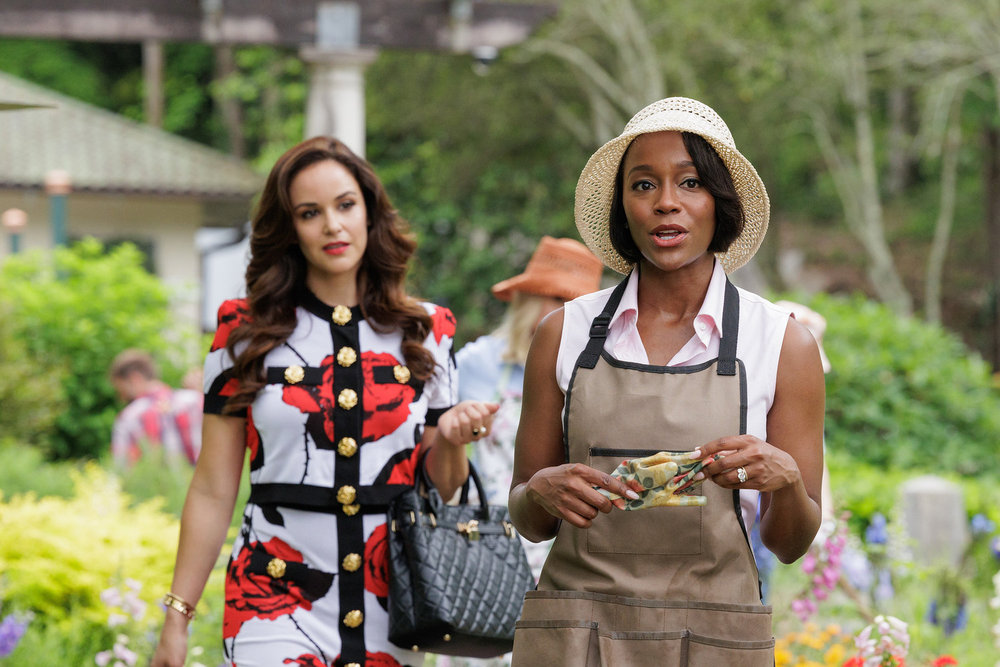NBC’s Grosse Pointe Garden Society echoes a lot of other prime-time murder mystery shows you’ve seen. It’s got a fair amount in common with Desperate Housewives (including a garden/flower motif). It shares the cloistered and privileged nature of HBO’s Big Little Lies. But what it mostly clearly resembles is How to Get Away with Murder.
And that’s not a bad thing.
Both series open with a motley, cross-racial group burying an unidentified body. The camera angles are the same, heightening the grisly nature of the task at hand. Both shows then switch timelines, with Grosse Pointe Garden Society cleverly incorporating its title cards into its scenery.
They both even have Aja Naomi King as one of the gravediggers. It’s been more than a decade since King first disposed of a body as law student Michaela Pratt so it must have been surreal to shoot such a similar scene all these years later. Having been nominated for a Critics Choice Award and an Emmy last year for her work in Lessons in Chemistry, King hopefully had her choice in roles and she easily embodies Catherine, hitting all the right notes.
With the four episodes available for critics to screen, no one as compelling as Annalise Keating emerged. But that character is one of TV’s all-time finest, embodied with grit and heart by national treasure Viola Davis. So perhaps that particular bar is too high.
It’s fun to watch Melissa Fumero as Birdie, a character who is the polar opposite of her most well-known role, Amy Santiago on Brooklyn Nine-Nine. Birde is the definition of a hot mess. She joins the titular garden club to work off her community service hours after an epic night that ends with a DUI. With big hair and plunging necklines, she’s consistently out of place in the suburban society she finds herself in (what is she doing there? We don’t really know).
And Fumero seems to be having a lot of fun playing a fish-out-of-water. It helps that Birdie’s subplot is the most interesting of all the characters. While her co-conspirators are dealing with a dead dog and failing (or flailing) marriages, Birdie is working through having given up a baby as a teenager (and not having any more children). It’s emotionally complex and Grosse Pointe Garden Society handles it well, letting Birdie be flawed and sympathetic.
That said, it’s unclear if the show has anything to say. It doesn’t explore the racial dynamics of its cloistered midwestern town, although it seems ripe for it. For example, there’s a scene where King’s Catherine is shamed by her PTA peers. They’re all white and seem determined to ostracize her for the rumors swirling around her. Eventually, Catherine strikes back and keeps her place, but the show never explores how her blackness may have made her seem like an easy target. It’s just mean moms being petty for no known reason.
Likewise, the men here are pretty much arm candy – which, no objections here – but the show doesn’t explore gender dynamics either.
It harkens back to simpler times, when racially diverse, woman-first shows dominated our national conversation (thanks Shonda). As even this type of superficial diversity comes under fire, Grosse Pointe Garden Society feels like a comfort watch. Throw it on to remember the simpler times, when Desperate Housewives or How to Get Away with Murder were appointment TV and we had no idea what was to come.

